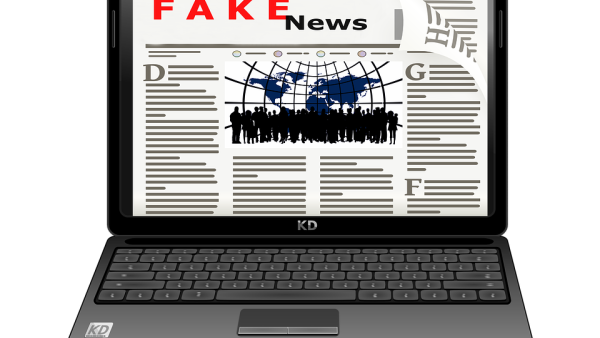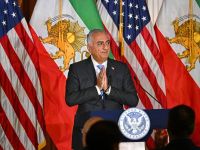Fake news rarely seems to have left the headlines in recent times in the West, with many suggesting fabricated stories played a role in influencing the recent US elections.
In a new development, the phenomenon has reached the Arab world, with potentially damaging consequences.
Saudi Arabia and the United Arab Emirates are close allies, with both currently participating in the coallition fighting Houthi rebels in Yemen. During the Saudi King Salman’s recent visit to the UAE, the Crown Prince of Abu Dhabi described Saudi Arabia as “the long pole” in the Arab tent.
However, fake news has threatened to sew the seeds of discord between the Gulf nations, after a recent story claimed that a high-ranking Saudi official had hinted at an impending political crisis for the Emirati rulers.
The alleged comments caused widespread consternation after they were shared by the Arabic-language section of Russia Today, according to HuffPost Arabi.
Responding to the allegations, Emirati Minister Anwar Gargash tweeted the following angry retort:
التلفيق الإعلامي الذي يستهدف العلاقة الاماراتية السعودية سمج، ومحسوب على جماعة الإخوان وإيران، نزداد تصميما بأن يبقى التحالف سدا عربيا صلبا.
— د. أنور قرقاش (@AnwarGargash) January 31, 2017
The media contrivances which target the UAE's relationship with Saudi Arabia are sickening, and calculated by the Muslim Brotherhood and Iran. We increase our resolve that the alliance remains a solid, Arab dam.
Russia today later deleted the story, but it continued to be shared on social media in the form of a link purportedly from the BBC Arabic website.
However, BBC Arabic yesterday released a statement saying that: “Some news sites have spread fake news claiming that the BBC's Arabic site published statements attributed to a Saudi intelligence official on the situation in the United Arab Emirates.”
“The BBC confirms that this is a fabricated story posted on a fake page mimicking the design of the BBC web pages,” they added.
Following the release of the clarification, Gargash, unfazed, tweeted the following:
التلفيق الإعلامي الذي يستهدف العلاقة الاماراتية السعودية سمج، ومحسوب على جماعة الإخوان وإيران، نزداد تصميما بأن يبقى التحالف سدا عربيا صلبا.
— د. أنور قرقاش (@AnwarGargash) January 31, 2017
You need to investigate the independent media channels as a source of false news, and you'll discover the role of the Muslim Brotherhood and Iran, who are attempting to target successful Arab projects.
While the story may have been fabricated, Saudis and Emiratis took to Twitter to respond by reaffirming what they called the close relationship between their two nations.
@AnwarGargash
— المحزم المليان (@kinggchelse) January 31, 2017
نحن اخوة دم ومصير وماضي وحاضر ولن تفرق بيننا دسائس الحاقدين
اليوم السعودية والامارات دولة واحدة وال سعود وال نهيان اسرة واحدة
We are brothers in blood, fate, past and present. We will not let the intrigues of haters divide us. Today Saudi Arabia and the UAE are one state, and the Saud and Al Nahyan families are one.
Arabic-language news sources are often held to lower standards of accountability than their English-language equivalents, even when they are located in Europe. The problem is compounded by the difficulty of verifying content shared on social media.
In one such example, a hoax news story was widely circulated in the Middle East over the weekend suggesting that Syrian President Bashar al-Assad had suffered a stroke.
RA






